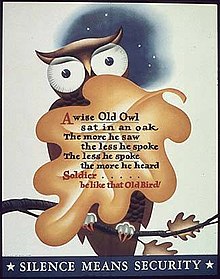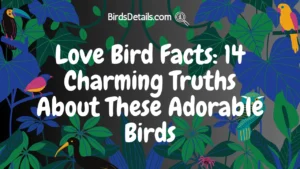The saying “Wise Old Owl” originated from the owl’s association with wisdom and intelligence. Long considered a symbol of wisdom in many cultures due to its observant nature and ability to see in the dark.
In various cultures around the world, the owl has long been associated with wisdom and intelligence. This association can be traced back to ancient Greek mythology, where the goddess Athena, known for her wisdom, had an owl as her symbol.
The owl’s ability to see in the dark and its observant nature further solidified this connection. As a result, the saying “Wise Old Owl” became a popular way to describe someone who is knowledgeable and wise. In modern times, the phrase is often used in a light-hearted manner to depict someone who is wise or clever.

Credit: en.wikipedia.org
The Myth And Symbolism Of The Owl
The owl has long been associated with wisdom and mysticism in various cultures around the world. Its nocturnal nature and piercing gaze have intrigued people throughout history, leading to the development of numerous myths and symbolisms surrounding the wise old owl. In this article, we will delve into the ancient cultures and their beliefs regarding owl symbolism, as well as explore the role of the owl in Greek mythology and Native American culture.
Ancient Cultures And Owl Symbolism
In ancient cultures, the owl was regarded as a symbol of wisdom and knowledge. Its ability to see through the darkness and navigate the night sky made it a powerful and enigmatic creature. In Egyptian mythology, the owl was associated with the goddess of wisdom, Ma’at, who was often depicted with an owl perched on her shoulder. The Greeks also believed that the owl possessed wisdom and foresight, making it the sacred bird of the goddess Athena, the goddess of wisdom and warfare.
The symbolism of the owl expanded beyond wisdom in some cultures. In Mesopotamia, the owl was considered a guardian of the afterlife, representing the passage from life to death. In Hinduism, the owl was associated with the goddess of wealth, Lakshmi, symbolizing prosperity and abundance. Across various ancient cultures, the owl’s symbolism was deeply intertwined with their beliefs and values.
The Owl In Greek Mythology
In Greek mythology, the owl was closely linked to Athena, the goddess of wisdom. The bird’s association with Athena can be traced back to the mythological story of how the city of Athens got its name. According to the ancient Greeks, the city was named after Athena, who won a contest against Poseidon to become its patron deity. Athena’s symbol, the owl, played a significant role in this myth as it contributed to her victory.
The story goes that Poseidon, the god of the sea, struck the Acropolis with his trident, causing water to burst forth from the ground. In response, Athena planted an olive tree as a symbol of peace and prosperity. The people of Athens elected Athena as their protector, impressed by her gift. Athena then placed an owl on her shoulder, and the wise owl flew into the night searching for a suitable name for the city. Eventually, it returned with the name “Athens,” and ever since, the owl has been revered as a symbol of knowledge and protection in Greek culture.
Owl Symbolism In Native American Culture
In Native American culture, the owl symbolizes various aspects ranging from wisdom and foresight to protection and spiritual guidance. Different tribes held their own interpretations of the owl’s significance, but common themes emerged. Many tribes believed that the owl was a messenger between the earthly realm and the spirit world, carrying messages from ancestors and guiding individuals on their spiritual journey.
Some Native American tribes also associated the owl with intuition and heightened perception. They believed that the owl’s keen vision and ability to hunt silently in the night represented the need for humans to trust their instincts and develop their own inner wisdom. For these tribes, encountering an owl was often considered a sacred and spiritual experience.
| Ancient Cultures | Owl Symbolism |
| Egypt | Wisdom and knowledge |
| Mesopotamia | Guardian of the afterlife |
| Hinduism | Wealth and abundance |
- The owl was associated with the goddess of wisdom, Ma’at, in Egyptian mythology.
- In Hinduism, the owl was connected to the goddess of wealth, Lakshmi.
- The owl symbolized wisdom and foresight, making it the sacred bird of Athena in Greek mythology.
- The owl was considered a messenger between the earthly realm and the spirit world in Native American culture.
- Encountering an owl was often seen as a sacred and spiritual experience by many Native American tribes.
The Origins Of The Phrase
The origins of the phrase “wise old owl” can be traced back through history, literature, and folklore. This well-known saying has its roots in various cultural and literary traditions, symbolizing wisdom and intelligence throughout the ages.
Early Literary References
Early literary references to the wise old owl can be found in ancient Greek and Roman texts, where the bird was associated with Athena, the goddess of wisdom. In these cultures, owls were considered symbols of knowledge and foresight.
The Owl As A Wise Creature
In many cultures, the owl has been revered as a symbol of wisdom and insight due to its nocturnal habits and perceived knowledge of the unseen. This belief is reflected in Native American folklore, where the owl is often depicted as a wise and mystical creature.
Popularization Of The Saying
The saying “wise old owl” became popularized in English literature, appearing in fables, nursery rhymes, and children’s stories. These tales often portrayed the owl as a wise and knowledgeable character, contributing to the widespread association between owls and wisdom in modern culture.
Comparisons To Other Wise Animals
Throughout history, animals have often been associated with wisdom and knowledge. Let’s examine how the wise old owl measures up against other revered creatures known for their intelligence and cunning.
The Owl Vs. The Fox
Owls are known for their keen vision and ability to see through deception, much like foxes are famed for their sly and clever ways of navigating through tricky situations. Both creatures display a level of wisdom that sets them apart from their counterparts in the animal kingdom.
The Owl Vs. The Raven
In various cultures, owls and ravens have been regarded as symbols of mystery and ancient knowledge. While owls are often associated with foresight and intuition, ravens are considered messengers of the unseen world, embodying a different facet of wisdom that intrigues mankind.
The Owl Vs. The Tortoise
Although owls and tortoises may differ drastically in appearance and behavior, both creatures have earned reputations for their wisdom across different cultures. The owl’s ability to soar above and survey its surroundings contrasts with the slow and steady approach of the tortoise, yet both animals are celebrated for their profound insights and thoughtful demeanor.

Credit: www.amazon.com
Modern Interpretations And Usage
The Wise Old Owl In Children’s Literature
Children’s stories often depict the owl as a wise and knowledgeable character. Due to its association with intelligence and wisdom, the wise old owl has become a popular symbol in children’s literature. From fables to picture books, the owl serves as a mentor or guide for young protagonists.
Owl As A Symbol In Popular Culture
In popular culture, the owl symbolizes wisdom, intuition, and mystery. It is frequently used in movies, art, and fashion to convey a sense of profundity and insight. The owl’s nocturnal nature adds an element of mystique to its symbolism, making it a versatile and enduring icon.
Metaphorical Meaning In Modern Society
- The phrase ‘wise old owl’ is often used metaphorically to describe someone who is perceptive and insightful.
- Owls are also associated with intuition and foresight, making them a fitting symbol for individuals or organizations seeking wisdom and guidance.
- Modern society embraces the owl as a symbol of intelligence and inner knowing, reflecting the timeless appeal of this enigmatic bird.

Credit: www.fabledcollective.com
Frequently Asked Questions On Where Did The Saying Wise Old Owl Come From
Why Is It Called A Wise Old Owl?
The phrase “A Wise Old Owl” is popular due to the owl’s reputation for being wise. In folklore, owls are seen as intelligent creatures, which led to the association with wisdom. This can be seen in the children’s nursery rhyme “A Wise Old Owl.
“
Where Does The Saying Wise As An Owl Come From?
The saying “wise as an owl” originates from ancient Greek mythology, where the owl was associated with the Greek goddess of wisdom, Athena. Owls are known for their sharp eyesight and ability to see in the dark, symbolizing wisdom and knowledge.
What Is The Saying About The Wise Old Owl?
The saying about the wise old owl emphasizes their intelligence and wisdom. They are seen as symbolizing knowledge and intuition.
What Is The Myth Of The Wise Owl?
The myth of the wise owl is a belief in various cultures that owls symbolize wisdom and intelligence. This myth has been passed down through generations and is often depicted in folklore and literature. Owls are revered for their nocturnal nature and penetrating gaze, reinforcing their association with wisdom.
Conclusion
The origins of the phrase “wise old owl” are deeply rooted in ancient folklore and mythology. From Athena to various cultural beliefs, the owl has symbolized wisdom and foresight for centuries. Understanding the historical context behind this saying adds depth to its meaning.
Delving into its rich history enriches our appreciation for this timeless expression.








